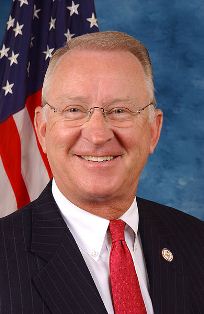
|
WASHINGTON (AP) -- Moving to protect the Pentagon, Republicans controlling the House are pressing for cuts to food stamps, health care and pensions for federal workers as an alternative to an automatic 10 percent cut to the military next year.
The proposed cuts in a measure scheduled for a vote Friday afternoon are but a fraction of those called for in the broader, nonbinding budget plan that passed the House in March. They are aimed less at taming trillion dollar-plus deficits than at blocking indiscriminate cuts to the Pentagon and domestic agencies coming in January.
The automatic spending cuts, totaling $98 billion next year, according to a new estimate, are punishment for the failure of last year's deficit-reduction "supercommittee" to strike a deal. Lawmakers in both parties want to avoid the automatic cuts, but Democrats are strongly opposed to the GOP approach, which slices more than $300 billion from domestic programs over the coming decade while preventing the Pentagon from absorbing a $55 billion blow to its budget next year.
The automatic cuts would strike domestic programs as well, including a 2 percentage point cut from Medicare payments to health care providers and a $16 billion cut in farm subsidies over a decade. The GOP measure would leave those cuts in place.
The butter-for-guns swap faces a veto threat from the White House and rejection by Democrats who control the Senate, who argue the GOP measure unfairly hits the middle class and the poor. Democrats are making it plain they expect any effort to turn off automatic spending cuts to include additional taxes. The resulting deadlock is highly unlikely to be resolved before Election Day.
The measure includes changes to the food stamp program that would remove almost 2 million recipients through tighter enforcement of eligibility rules and would cut back a 2009 benefit increase, costing a family of four $57 a month. Federal workers would have to contribute 5 percentage points more of their pay toward pension plans that are more generous than most private sector workers receive.
Fully 25 percent of the cuts come from programs that benefit the poor, while cuts to President Barack Obama's health care plan affect those with modest incomes. A cut to the Social Services Block Grants, which Republicans say duplicates other programs, would hit programs like Meals on Wheels for the elderly, child care and child abuse prevention. Another provision opposed by most Democrats would deny illegal immigrants tax refunds from the $1,000-per-child tax credit.
"They are protecting the massive Pentagon budget with all its waste ... and finding even deeper cuts in programs that benefit the people of this country," said liberal Rep. Jim McGovern, D-Mass. "This bill before us would create a government where there is no conscience; where the wealthy and well-connected are protected and enriched - and the middle class, the poor, and the vulnerable are essentially forgotten."
But Republicans noted that much of the food stamp savings came from tightening eligibility loopholes and that the savings equal just 4 percent of the program's budget. Democrats noted that the cuts would also take away free school lunches for 280,000 children.
Senate Majority Leader Harry Reid, D-Nev., stepped off the sidelines Wednesday with a forceful speech promising to leave the automatic cuts in place until Republicans show more flexibility on cutting the budget deficit through a mix of new revenues and spending cuts.
"Republicans refused to be reasonable. They refused to raise even a penny of new revenue or ask millionaires to contribute their fair share to help reduce our deficit and our debt," Reid said. "It is their intransigence - their refusal to compromise - that leaves us facing the threat of" automatic cuts.
The White House veto threat arrived just a few hours later.
"The bill relies entirely on spending cuts that impose a particular burden on the middle class and the most vulnerable among us, while doing nothing to raise revenue from the most affluent," a White House statement said.
But two top Republicans, House Armed Services Committee Chairman Howard "Buck" McKeon of California and Budget Committee Chairman Paul Ryan of Wisconsin, countered Wednesday with an editorial on RealClearPolitics.com that warned of the "crippling effect" the automatic cuts would have on the military, including troop cuts and gains made against terrorism.
The Congressional Budget Office issued a new analysis on the GOP measure as well, declaring the measure would cut the deficit by as much as $238 billion over the coming decade. But deficits for next year would actually increase by about $28 billion, depending on when the measure could be enacted.
© 2012 The Associated Press. All rights reserved. This material may not be published, broadcast, rewritten or redistributed. Learn more about our Privacy Policy and Terms of Use.




















































































































































































































































































































































